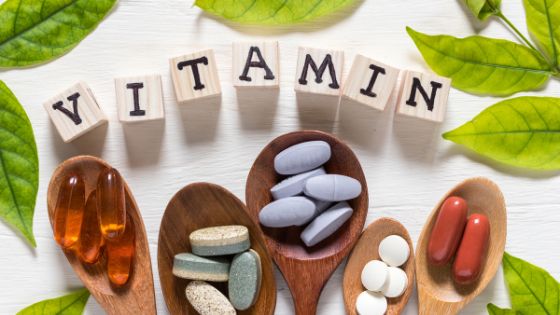Many businesses have developed vegan-friendly multivitamin supplements since the introduction of the vegan lifestyle. Some vegan supplements, among the many available on the market, are unquestionably worthwhile. But, It’s not always apparent whether every vegan multivitamin supplement fits within this group. This post explains why vegan vitamin supplementation may be advantageous and gives tips for choosing the best multivitamin for vegans.


Why Vegan Supplements Could Be Beneficial:
Vegan diets are inherently poor in vitamin D, vitamin B12, iodine, and long-chain omega-3 fats. Plant-based diets may provide low levels of calcium, iron, zinc, choline, selenium, and folate, depending on the individual’s eating habits. It is preferable to obtain these nutrients through diet rather than supplements. Vitamins supplements, on the other hand, can be a valuable source of micronutrients that are difficult to get from food alone.
What Micronutrients Should Vegans Supplement In Addition To Their Regular Diet?
You might be curious which micronutrients a healthy plant-based diet follower should take when augmenting nutrients separately.
A variety of circumstances will determine the micronutrients to supplement. A few criteria are your gender, age, diet quality, and life stage. People who follow plant-based diets can benefit from the following micronutrient supplements:
- Vitamin D: It is a rare yet essential vitamin that very few foods deliver to your body. Mood stabilization, memory enhancement, boosting immune function, inducing muscle recovery, and bone health are among vitamin D’s benefits.
- Vitamin B12: Vitamin B12 is vital for the neurological system. It’s also used by your cell to produce DNA, energize you, and even improve your mood and cognition.
- Iodine: Iodine is necessary for the endocrine system to function correctly, influencing your metabolic activity. Inadequate iodine levels can lead to fatigue, dry skin, cognitive impairment, weight gain, and depression.
What Is A Natural Food-Based Multivitamin?
Micronutrients in natural food supplements are extracted from dried and reduced raw foods rather than being synthesized in a facility. Natural plant-based supplements are products that are made from real plants. By glancing at the label, you can identify if a supplement is produced from raw foods. It might be certified as 100% natural, with food sources listed instead of synthetic constituents.
Synthetic Vs. Plant-Based Multivitamin: Which Is Better?
Plant-based multivitamins may offer beneficial plant constituents that synthetic counterparts lack because they are derived from whole plants. Furthermore, synthetic compounds can be more complex for your body to assimilate and may react differently to synthetic micronutrients than plant-based minerals.
However, vitamin levels in natural plant-based supplements may be less dependable than those manufactured synthetically because vitamin levels in plants vary depending on where and how they were cultivated. However, this minor disadvantage of plant-based supplementation may not be sufficient to disregard them as they are generally of considerably higher and premium quality.
Final Thoughts:
Vegan multivitamins can be a practical method to supplement your diet and fill in any essential gaps. The guidelines above are intended to assist you in selecting the best multivitamin for vegans for your specific needs. Bear in mind, however, that most of your nutrition must come from a well-balanced, nutrient-rich food rather than pills. A multivitamin tablet is a dietary supplement, not a meal substitute.
















